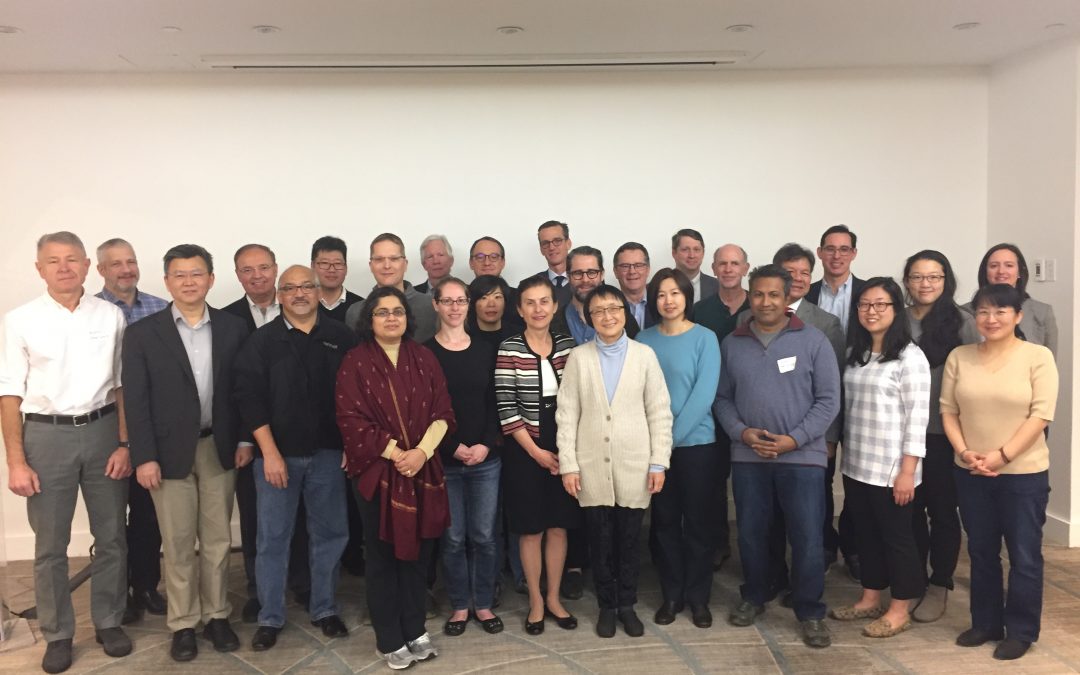News and Events
SmartTots: Building Community and Advocating for Important Research
SmartTots pediatric anesthetic neurotoxicity thought leaders discuss the current status of the field and provide insights into the future of the research. View on YouTube.
Pediatric Anesthetic Neurotoxicity: Finding Ways to Move Forward
Pediatric anesthetic neurotoxicity investigators discuss the state of the research and identify compelling ways to move the field forward. View on YouTube.
Pediatric Anesthetic Neurotoxicity: Designing the Proper Study
Pediatric anesthetic neurotoxicity thought leaders ponder the feasibility of designing and conducting studies that successfully isolate the effects of anesthetics from the effects of the procedure or patient’s underlying condition. View on YouTube.
Pediatric Anesthetic Neurotoxicity: The Pre-Clinical Journey
Pediatric anesthetic neurotoxicity researchers discuss how pre-clinical studies are providing insight into the mechanisms of neurotoxicity, and the impact on the future of clinical studies. View on YouTube.
Panda Symposium
SmartTots – Perspectives from the Front Lines
Millions of children undergo surgery annually. Recent studies suggest there may be reason for concern. This video, featuring Dr. Dean Andropoulos, Dr. Peter Davis, and Dr. Caleb Ing, provides a summary as to why research is needed and the type that is needed.
Announcing the Appointment of Dr. Dean Andropoulos as the Medical Officer of SmartTots
The IARS announces the appointment of Dean Andropoulos, MD, M.H.C.M. as the Medical Officer of SmartTots. Dr. Andropoulos is an established clinical researcher, and a board-certified physician in Anesthesiology and Pediatric Anesthesiology. He is...
Best Pharmaceuticals for Children Act (BPCA) Priority Releases 2020-2021 List of Needs in Pediatric Therapeutics
The National Institutes of Health (NIH) recently announced an updated BPCA Priority List of Needs in Pediatric Therapeutics. In an ongoing effort to improve the level of information on the safe and effective use of pharmaceuticals used to treat children, the BPCA requires that the NIH poll pediatric experts annually to identify the latest, highest priority needs.

SmartTots Workshop for Preclinical Research in Anesthetic Neurotoxicity
The workshop brought together a diverse, multi-disciplinary group of researchers in an effort to develop a common framework for pre-clinical studies. The overarching goal of this workshop was to develop consensus regarding reporting of studies for publication, so that there is comparability and consistency across different laboratories, and discuss future directions for pre-clinical research in anesthetic neurotoxicity in the developing brain.
Dr. Sun shares her plans for SmartTots
The IARS recently announced the appointment of Lena S. Sun, MD, as the Medical Director of SmartTots. Dr. Sun is an established basic science, translational and clinical researcher, a board-certified physician in Pediatrics, Anesthesiology and Pediatric Anesthesiology...
